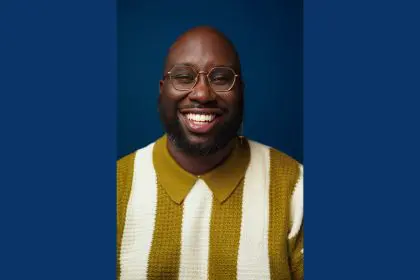The revelation arrived like a missing puzzle piece finally clicking into place. At 42, Grammy-winning R&B vocalist Chrisette Michele discovered she is autistic, a diagnosis that has fundamentally transformed her understanding of herself and her tumultuous career trajectory.
Michele’s announcement on Instagram sent ripples through the music community, not just for its candor but for what it represents: a successful Black woman artist finding answers to lifelong questions about her place in the world. Her post, accompanied by two contemplative photographs, revealed that she had just learned she is autistic.
The diagnosis, which Michele described as severe, came after years of what she now recognizes as masking behaviors that helped her navigate social and professional situations. For someone whose career has been marked by both soaring highs and devastating lows, this medical confirmation provides a framework for understanding patterns that previously seemed inexplicable.
Understanding the late Chrisette diagnosis
Late autism diagnoses, particularly among women and people of color, have become increasingly common as awareness grows around how autism spectrum disorder presents differently across demographics. Michele’s experience reflects a broader pattern where individuals spend decades feeling fundamentally different without understanding why.
Michele expressed that her life and its challenges finally make sense, capturing the relief many feel upon receiving a diagnosis that finally explains their experiences. The singer’s openness about her severe diagnosis challenges stereotypes about what autism looks like, particularly among successful professionals.
Social media silence and self-discovery
Michele’s recent absence from social platforms now carries new meaning. She explained that she had been outside singing but learning to strip the mask one show at a time, referencing both literal and metaphorical masks. The acknowledgment of irony speaks to her growing awareness of how performance has shaped her life both on and off stage.
This period of retreat appears to have been crucial for processing her diagnosis. Michele described coming to grips with a lot and giving herself room to take it all in, suggesting a deliberate effort to understand how autism has influenced her life choices and relationships.
Career turbulence through new lens
Michele’s professional journey has been marked by extraordinary highs and crushing setbacks. Her Grammy win for Best Urban/Alternative Performance established her as a formidable talent with Be OK. However, her career took a dramatic turn following her decision to perform at Donald Trump‘s presidential inauguration.
The backlash was swift and severe. Her record label dropped her, radio stations stopped playing her music, and most painfully, family members distanced themselves. During an appearance on The Breakfast Club, Michele expressed that there was no hesitation in accepting the performance invitation despite feeling confused about Trump’s campaign rhetoric.
Viewed through the lens of her autism diagnosis, Michele’s decision-making process around the inauguration performance takes on new dimensions. Autism often involves challenges with reading social cues and predicting social consequences, which could explain her apparent surprise at the community’s response.
Musical evolution and authentic expression
Michele’s recent performances, which she references as part of her mask-stripping journey, suggest an artistic evolution informed by self-understanding. The process of unmasking, both literally and figuratively, may influence her future musical output as she explores more authentic forms of expression.
Her statement about performing one show at a time indicates a measured approach to re-engaging with her career. This deliberate pacing aligns with many autistic individuals’ need for structured, manageable environments that don’t overwhelm their sensory systems.
Community response and future Chrisette journey
The response to Michele’s announcement has been largely supportive, with fans and fellow artists expressing admiration for her vulnerability. This positive reception contrasts sharply with the hostility she faced after the inauguration performance, perhaps reflecting both changing cultural attitudes and the power of authentic self-disclosure.
Michele’s story resonates particularly with other late-diagnosed individuals who recognize their own experiences in her journey. Her platform allows her to normalize conversations about autism while challenging preconceptions about what autistic individuals can achieve.
As Michele continues processing her diagnosis, she indicated plans to share more about her journey. Her closing statement about wanting to say hello from stage side suggests ongoing engagement with her audience while maintaining necessary boundaries.
This new chapter in Michele’s life represents more than personal growth; it’s a public service. By sharing her diagnosis and its impact, she’s contributing to broader autism awareness while potentially inspiring others to seek answers to their own questions about neurodivergence.
Michele’s revelation about her autism diagnosis at 42 serves as a powerful reminder of the importance of understanding oneself and embracing one’s identity. As she continues to share her journey through music and newfound perspective, her story resonates with many who may be facing their own challenges of self-discovery and acceptance.
















